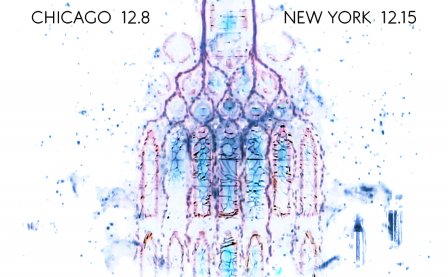To listeners familiar with the ambient music duo Stars of the Lid and their mega-slow-motion odes to impossible spiritual resignation, this new solo album by SOTL’s Brian McBride won’t sound particularly earth-shattering. This music was commissioned for the new documentary Vanishing of the Bees, a film that examines the mysterious Colony Collapse Disorder and its effects on beekeepers and on North America’s food supply. Unsurprisingly, the film adopts a tone of urgency, grasping for solutions to an enormous problem even as the precise reason for this unprecedented pandemic of honeybee deaths goes unexplained. What’s at stake in the situation the film presents is modern man’s relationship to nature, and the need for responsible alternatives to an agriculture industry that has become aggressive and exploitative in the attempt to satisfy the market’s demands. This soundtrack, whose few musical details are smeared against time and against each other so thoroughly that they beg the listener’s emotional restraint instead of his response, seems to exist at a curious distance from the time-sensitive imperatives of the film’s mission. Sometimes mournful, but also optimistic, and indirectly evoking things like mourning and optimism without using typical musical devices to explicitly suggest any of them, McBride’s latest set of ambient pieces stands on its own, with an aesthetic posture of its own. If McBride’s as worried about the bees as the filmmakers are, his music makes it impossible to tell.
Although at first glance The Effective Disconnect’s lazy drones and pure-toned string swells don’t sound much different from SOTL’s usual style, McBride has shrunk the architecture on these pieces, presenting a series of self-contained miniature suites instead of opting for the large-scale grandeur of The Tired Sounds… and …And Their Refinement of the Decline, his duo’s last two double LPs. No longer does mere duration do most of the heavy lifting in service of his music’s effect on the listener; his approach on this soundtrack puts more weight on the juxtaposition of different tones and textures. “Girl Nap,” despite its relatively brief four-minute running time, makes four distinct tonal shifts: a filtered one-note string section, then larger, nearly dissonant string chords, eventually the steady pulse of a muffled piano, then a key change and a coda led by stately horns. It has more of an explicit arc from beginning to middle to end than any SOTL song ever did, although the incredible gentleness of the music’s texture makes it easy to lose oneself in the narrative. McBride’s music doesn’t need to change very often to feel alive, though; “Supposed Essay on the Piano (B Major Piano Adagietto)” is much more interesting than “Several Tries (in an Unelevated Style)” or “I Know That You Don’t Like the Future Like I Do,” although more things happen in the latter two pieces. “Supposed Essay” is pregnant with hope, but some of the others wallow in a hushed inertia that isn’t negated by the illusion of activity.
The most unique and startling moments on Disconnect occur toward the end. The opening 90 seconds of “Beekeepers vs Warfare Chemicals,” featuring a metronomic glockenspiel alongside a four-chord string sequence, is achingly peaceful, but the section ends suddenly, and the rest of the song ebbs with a quiet mournful dread. It’s the only piece that feels obviously connected to the film, and it ends in a whisper: a piano-led question mark. The explicit mood of “Beekepers” surprises me; much of the time, in this type of ambient music, there’s little enough going on that emotional content has to be projected onto the music, and there’s little enough going on that the projections don’t have anywhere to stick. But Disconnect isn’t totally evasive; during a couple minutes of album closer “Chamber Minuet,” McBride makes the rare and (for him) daring move of featuring a string quartet that actually sounds like a string quartet. These moments are not only rare within the album, but also within McBride’s career, and to those who are looking for it, it’s this slight nudge out of the shadows toward the obvious, out of the obscure toward the self-evident, that reveals itself as this album’s defining characteristic. But to those who aren’t used to listening to music that never seems to begin or end, music that is forever withholding a vital and deliberate sense of weight or of touch that grounds it in the life of the senses, this music will still feel shadowy and obscure, and its effect on these people will likely be weakly evocative or troublingly ambiguous. McBride’s music doesn’t make it easy to tell what he is trying to say, and this album isn’t enough of a triumph or an arrival point that it would be a good place to start exploring his music. Disconnect can be seen neither as a further development of SOTL’s continual expansions of textural weight and of time, nor as a preachy or alarmist complement to a film that has the tendency to be both, but for what it is: a quiet, humble experiment with structure and the juxtaposition of textures.
More about: Brian McBride


